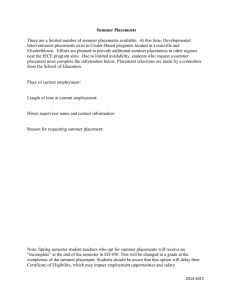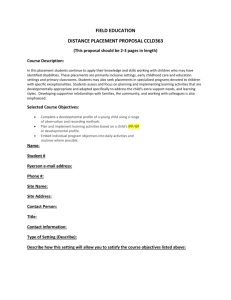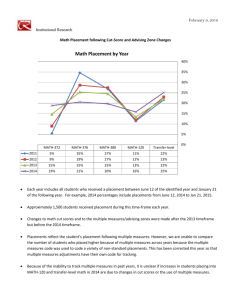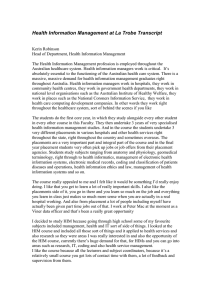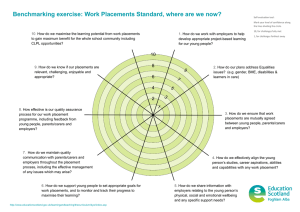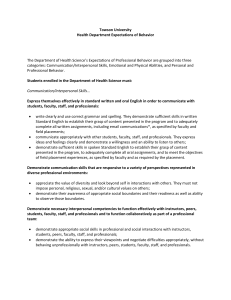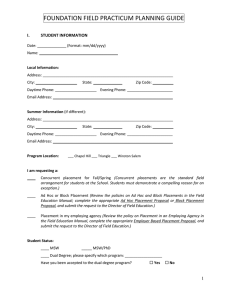The Field Education Program at UNC-Chapel Hill
advertisement
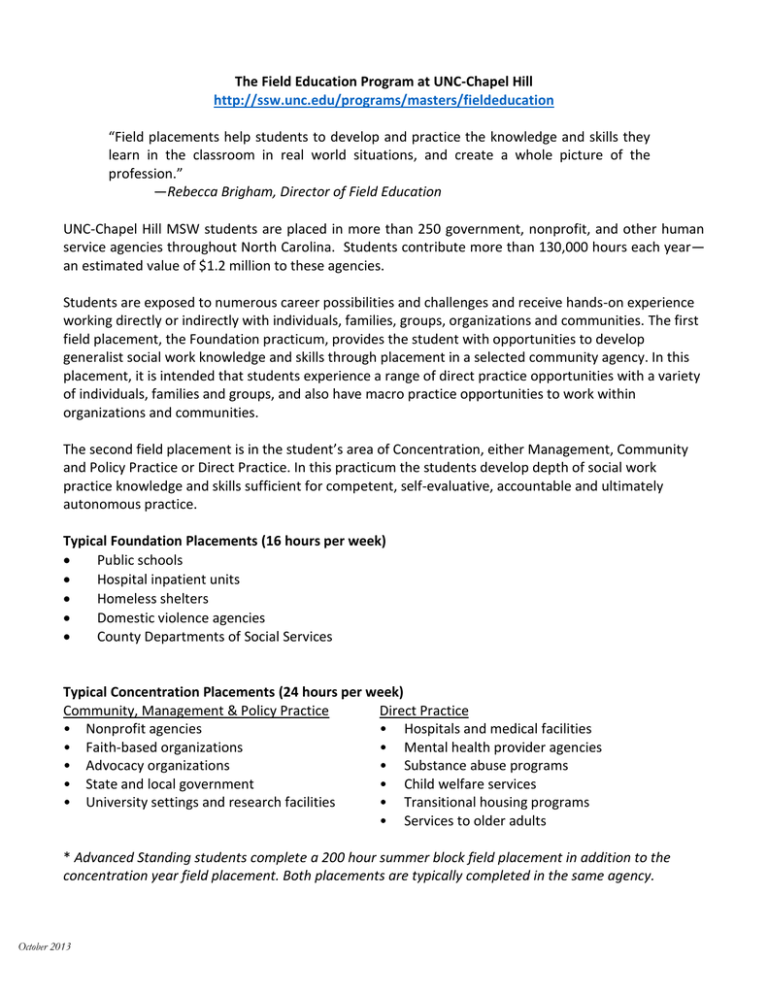
The Field Education Program at UNC-Chapel Hill http://ssw.unc.edu/programs/masters/fieldeducation “Field placements help students to develop and practice the knowledge and skills they learn in the classroom in real world situations, and create a whole picture of the profession.” —Rebecca Brigham, Director of Field Education UNC-Chapel Hill MSW students are placed in more than 250 government, nonprofit, and other human service agencies throughout North Carolina. Students contribute more than 130,000 hours each year— an estimated value of $1.2 million to these agencies. Students are exposed to numerous career possibilities and challenges and receive hands-on experience working directly or indirectly with individuals, families, groups, organizations and communities. The first field placement, the Foundation practicum, provides the student with opportunities to develop generalist social work knowledge and skills through placement in a selected community agency. In this placement, it is intended that students experience a range of direct practice opportunities with a variety of individuals, families and groups, and also have macro practice opportunities to work within organizations and communities. The second field placement is in the student’s area of Concentration, either Management, Community and Policy Practice or Direct Practice. In this practicum the students develop depth of social work practice knowledge and skills sufficient for competent, self-evaluative, accountable and ultimately autonomous practice. Typical Foundation Placements (16 hours per week) Public schools Hospital inpatient units Homeless shelters Domestic violence agencies County Departments of Social Services Typical Concentration Placements (24 hours per week) Community, Management & Policy Practice Direct Practice • Nonprofit agencies • Hospitals and medical facilities • Faith-based organizations • Mental health provider agencies • Advocacy organizations • Substance abuse programs • State and local government • Child welfare services • University settings and research facilities • Transitional housing programs • Services to older adults * Advanced Standing students complete a 200 hour summer block field placement in addition to the concentration year field placement. Both placements are typically completed in the same agency. October 2013


